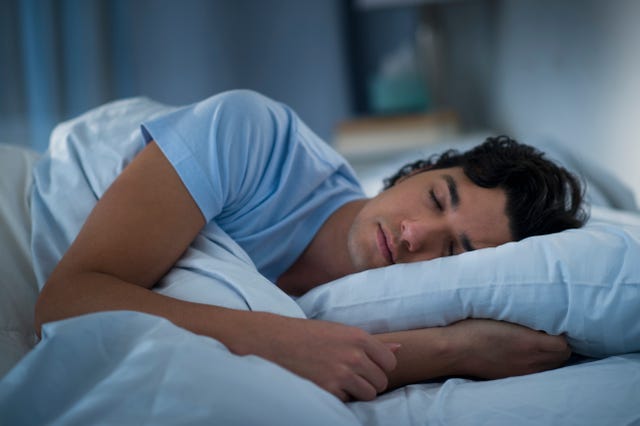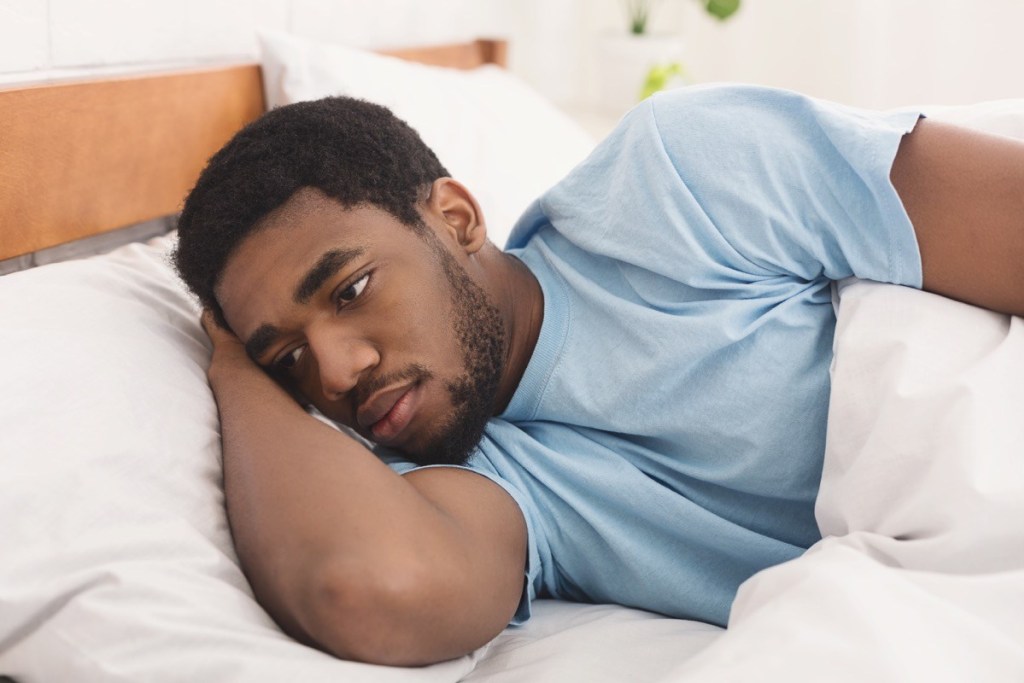Don’t stress. Just do this to get what you need.
BY ROZALYNN S. FRAZIER
Getting sleep is an essential part of life. “Outside of bacon and sex, sleep is the most important thing on the planet,” says MH Advisor W. Chris Winter, MD, neurologist, sleep specialist, and author of numerous books on sleep including The Rested Child. And for good reason. When you are lacking in quantity and quality Z’s, you leave yourself open to a host of issues, including type 2 diabetes, heart disease, obesity, and depression.
Even if you are doing all of the right things to foster a good night’s sleep, including regular exercise, sleeping on a schedule, avoiding alcohol at night, sleeping in cooler temperatures and keeping your room dark and quiet, good sleep can sometimes still be a struggle. Luckily, it’s not always a major cause for concern. “An occasional cupcake or missed meal is irrelevant. If either becomes the standard it’s deadly. Same with sleep. Tonight’s sleep is not that big of a deal,” says Dr. Winter, who notes that the difference between sleeplessness and insomnia is the anxiety you choose to bring to the situation.
Still, that doesn’t make the fact that you can’t snooze any less annoying. If you are having trouble, here are a few in-the-moment things you should and shouldn’t do.
Just enjoy the rest. Really.
You may not think there is value in just closing your eyes and lying in bed, even if sleep is evading you, but the truth is that resting is tremendously beneficial from a physical and cognitive perspective, according to Dr. Winter, who says that we put far too much emphasis on tips to fall asleep. Resting is a way to simply get your body and mind to relax. “If it’s impossible not to sleep, we just need to take ourselves off the hook and be comfortable with being awake in bed. It’s nothing to fear,” explains Dr. Winter, who also says that we need to eliminate the word “unconsciousness” from our list of goals when we get into bed. “I would say, if you do not mind being in bed, awake, thinking, meditating, praying, thinking about your celebrity crush…stay there,” says Dr. Winter.
Stay away from the screens

We get it, if you’ve been tossing and turning and sleep has yet to come, you may want to reach for your TV remote or grab your phone for a bit of mindless scrolling to pass the time. Don’t. You don’t want to use any electronics or bright light devices, advises Kuljeet (Kelly) Gill, MD, a sleep medicine specialist at Northwestern Medicine Central DuPage Hospital, as that glowing light, AKA blue light, can interfere with sleep even more by suppressing the production of melatonin, the hormone that regulates your sleep-wake cycles.
Use your bed only for sleep
One of the biggest sleep missteps: using the bed for anything other than sleeping. “Get in bed only to sleep,” says Alcibiades J. Rodriguez, MD, FAASM, Medical Director, NYU Comprehensive Epilepsy Center-Sleep Center and Associate Professor of Neurology NYU Grossman School of Medicine. (Okay, and sex too.) Here’s the thing, sliding between the sheets should signal it’s time for, well, sleep. If you do other things right before bed, whether it’s working on your laptop or having a snack, your brain will begin to associate your resting place as everything other than what it’s made for.
Get out of bed
Whether you’re having trouble drifting off into dreamland at the beginning of the night or getting back to sleep after waking up in the middle of the night, it can be useful to only be in the bed for so long. Several experts say if sleep isn’t happening after about 20 minutes, “get up and leave the bed and do something relaxing, low energy and in dim light such as reading, meditation or deep breathing,” adds Dr. Gill. And don’t look at the clock, adds Dr. Rodriguez. Watching those minutes and hours tick by can up your worry factor and extend the time it takes to go from wakefulness to sleep.
When should you return to bed? Dr. Winter is not a fan of putting a time limit on the situation. “It just adds to the stress,” he says. “I would say go back to bed if you feel sleepy. If not, stay up as late as you like and don’t worry about it.”
The thing to really remember: “Being in bed and not falling asleep right away, or awakening during the night, to me, is not horrible. It’s not even difficult. It just is,” says Dr. Winter. “What is difficult is the work some people need to do to get out from under this kind of thinking. Most people do not want to do it. They want a pill or a simple trick. They do not want to actually explore the meaning of insomnia…and the fact that it’s really just fear…not sleep deprivation.”

